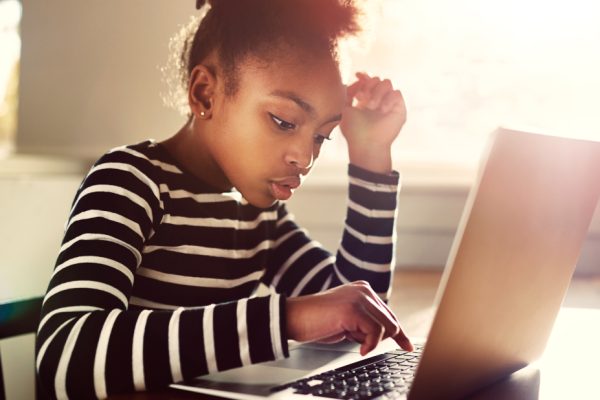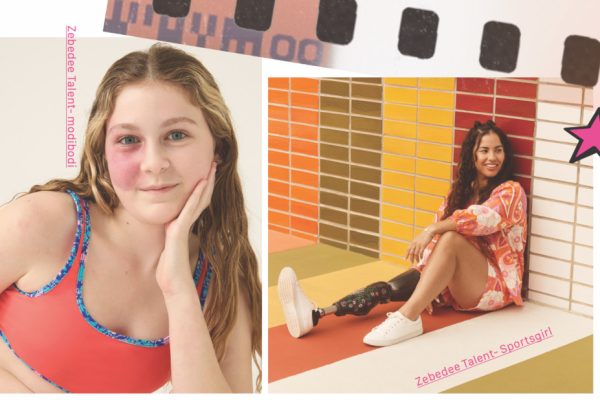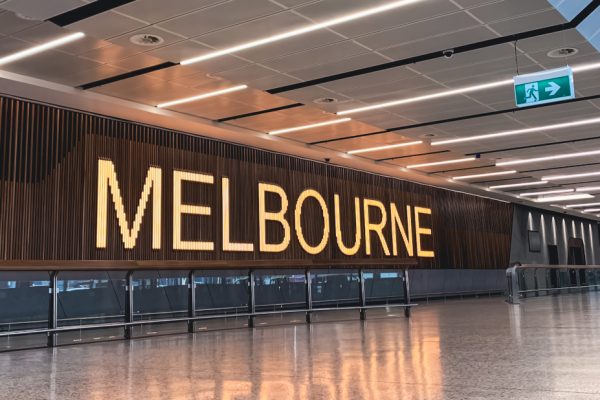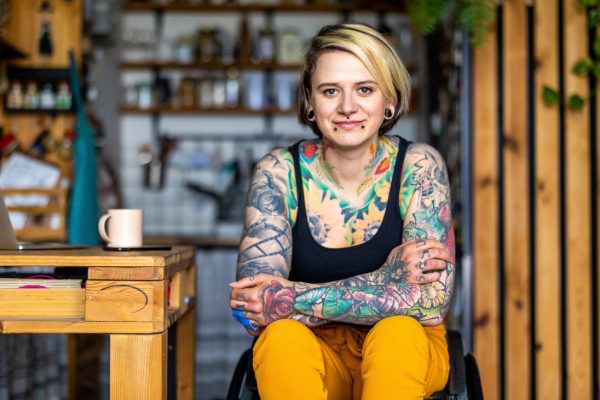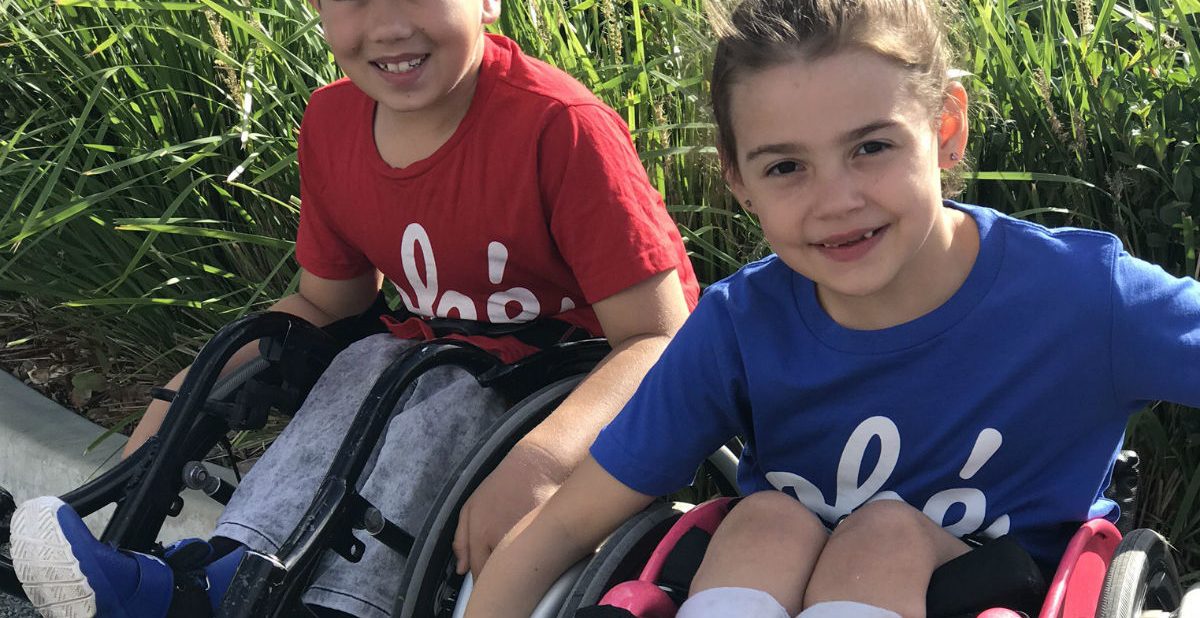
With a little help from our friends
By Rachel Williams
There is no I in team. It takes a village to raise a child. I get by with a little help from my friends…
You get the drift – we are all better when we are surrounded by people who have our back, who raise us up and inspire us to shine a little brighter.
The importance of friendship and social support groups can’t be underestimated – it is essential for our physical and psychological well-being.
Perhaps, it’s even more imperative for people in the special needs community.
There are so many examples of awesome individuals and groups doing amazing things for building community within the disability sphere. We have found four unique individuals who unite others for the greater good and these are their stories.
Brydi Saul and Josh Brass may be young but their strength of character, resilience, attitude, ability and wisdom is well beyond their years.
Josh and Brydi are both 9 with aspirations to represent Australia at the Paralympics.
The pair has developed a strong bond through their work as ambassadors with the ICANIWILL foundation – a position they both believe has made them better people.
Josh hails from Queensland and was diagnosed at birth with Sacral Agenesis/Caudal Regression Syndrome – he was missing multiple vertebrae, his tail bone, knee caps and a kidney.
His mum Abbi says that Josh showed incredible strength from early on – he’d perfected using a wheelchair by the age of three and a year later moved from a standard paediatric chair to a suspension chair and started dare-devilish sports such as WCMX (going to the skate park)”.
He actively participates in track athletics, swimming, tennis, triathlons, 5km races, Spartan Races (obstacle course racing), surfing with the Disabled Surfers Association and attends weekly Personal Training sessions.
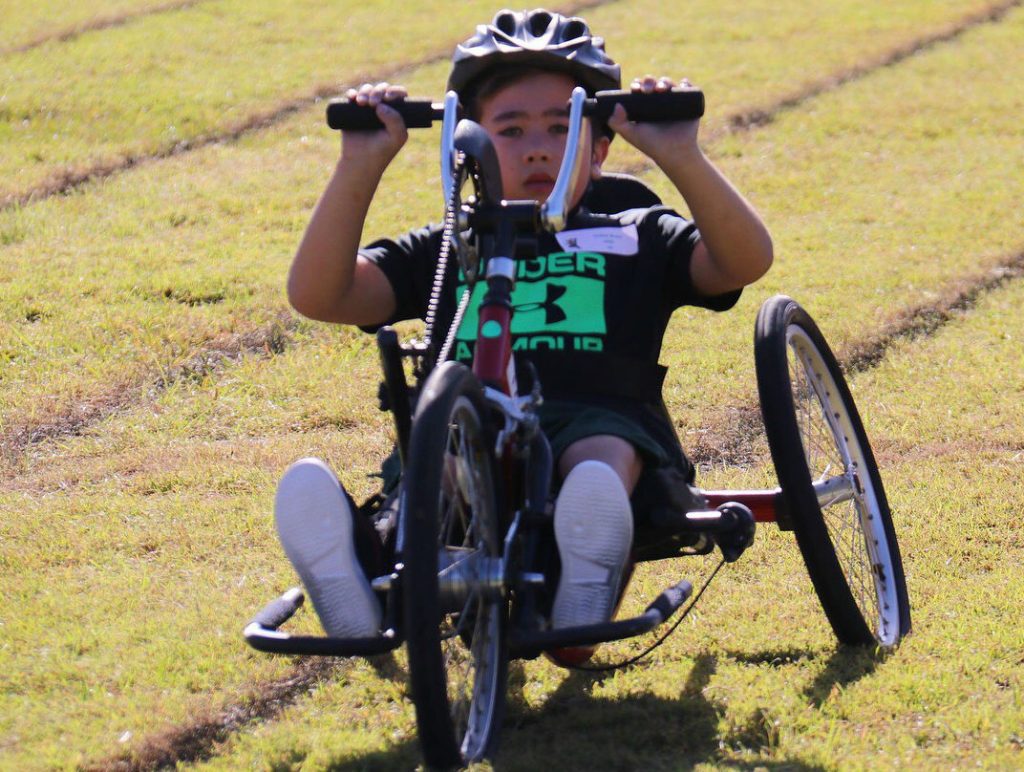
“Of course occasionally you might see him at the skatepark,” laughs mum.
His motivation is “to win medals” and wants to be a model or actor with his own TV show or YouTube channel. If that’s not enough aspiration, he also wants to be a geologist, archaeologist or a marine biologist.
But for now this “stubborn, confident, resilient” kid is helping ICANIWILL to prevent bullying – something he has never encountered.
“Being a part of ICANIWILL has opened Joshua’s eyes up to a whole new level of bullying.
As an outsider you don’t know the full extent of what some of these kids go through. The physical, mental and emotional bullying is horrendous and has become an epidemic in today’s society,” Abbi reports.
“He now knows how to spot bullying at school, how to talk to the students involved and how to communicate to the teachers to help eradicate or at least minimise it.
“He has the voice, the platform and is in a chair so knows firsthand how being different physically can change others’ perceptions of you.”
Brydi wasn’t so lucky. She was badly bullied.
The fellow Queenslander was born with a congenital spinal hemangioma at T11-L4 and had spinal surgery at 3 days old to remove the tumor and some parts of her spine.
She was told she would never be able to sit up straight, let alone walk.
Fast forward to four and she was a pro at pushing and developed a love of sport from her triathlete parents and watching the Paralympics.
She now competes in triathlons, wheelchair racing, Spartan and Tough Mudder events and has plans to represent her country one day.
“She has always shown determination and drive,” mum Toni says.
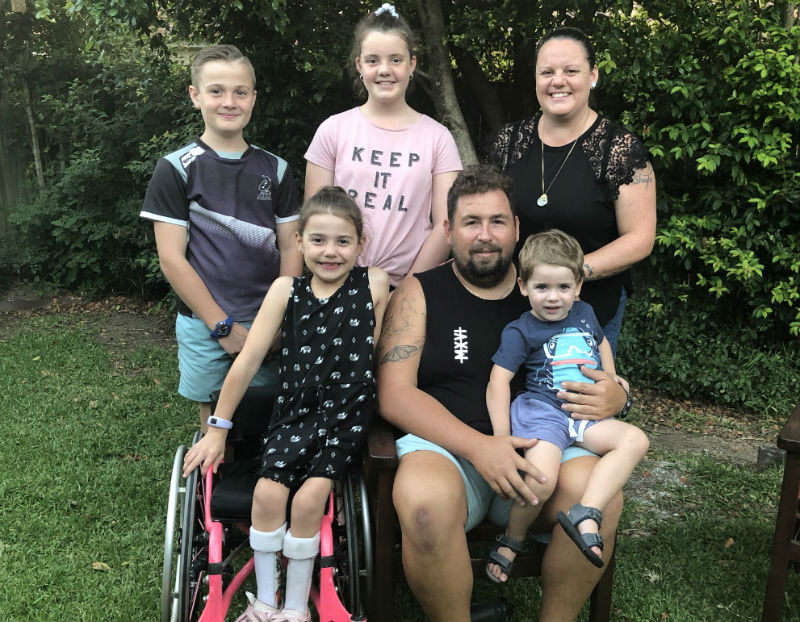
“It became apparent she was not going to give up on her goal of being a superstar when she was only about two – she just does what she has her heart set on with a ‘no limits, no such thing as can’t, attitude’.”
Her success is in spite of those who were cruel.
“She was first involved with ICANIWILL as a recipient of a wish… she was being severely bullied at school and was suicidal,” Toni recalls.
“It was a hard time and we struggled but as soon as we met Conan from ICANIWILL all of our lives changed! Brydi was granted a wish to meet one of her Paralympic idols and that was Brendan Hall! She got to go swimming with him and learn from him and he ignited her love for swimming again!
“Through learning to being more resilient and how to be strong again, she turned herself around and is now sticking up for others!”
Both Brydi and Josh say it’s vital to surround yourself with positive people.
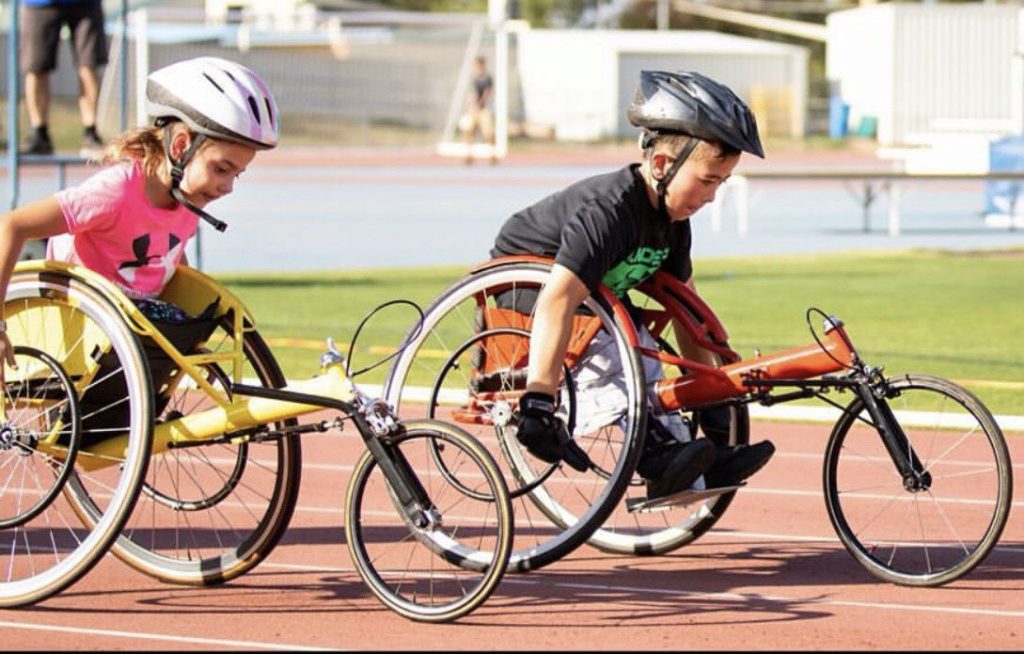
“Positive people get things done,” Josh says.
“Positive people are happy. Positive people see the sun on a cloudy day. Positive people make you smile, and when you smile you feel better about yourself and the others around you reflect your smile. Did you know positive, optimistic people live longer?”
“It’s also important not to let negative people crush your dreams,”
Brydi says.
“Reach out and talk to someone when you need help. Don’t let the negativity or someone’s opinions of you bring you down!”
There is no manual for parenthood and definitely no fail proof instructions for dealing with an autistic child.
And when it comes to dads, there seems to be even less documentation about their experiences.
Finding different dads to talk to and share their stories has been a cathartic experience for Nicole Rogerson, who produced the documentary Dad: a film about fatherhood and autism – to help those on the journey.
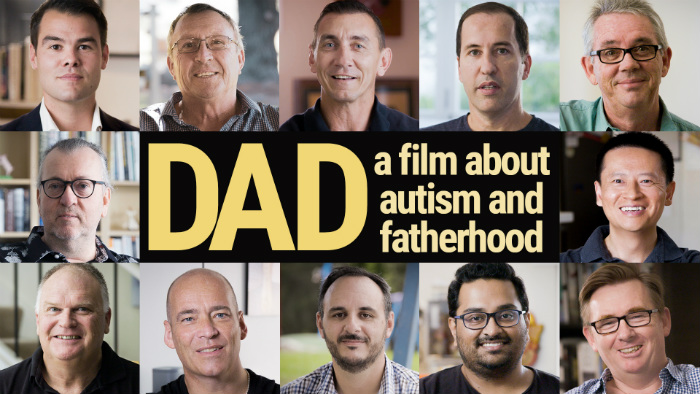

The film was released in October, 2018 with screening premieres in Sydney, Melbourne, Brisbane and at Parliament House in Canberra. Nicole, whose adult son Jack has autism, says it can be a challenging journey because autism doesn’t announce itself in the delivery room.
“You can’t detect it from a blood test or any type of prenatal screening. In fact, children with autism are typically born as healthy, bouncing babies with 10 fingers and 10 toes. Their parents take them home from the hospital and all is as it should be – a happy family.
“Sometime around 18 months to two years later, parents might start to notice signs that their child’s development is not like that of children of a similar age.
“Parents tend to start down a well worn track to work out what is affecting their child’s development.
“In my experience, mums and dads often have different approaches during this period.
“Ok, so I am over generalising here but typically women tend to be better ‘sharers’ of their emotions. I mean, we just are! From the beginning, there are constant formal and informal structures that allow women to access support as a new parent, from mother’s groups, the early childhood centres, to pre-schools. If we need support, we seek it out and it’s easy to find.
“I just didn’t find this was true for dads.”
Nicole is speaking from experience and with authority – she has spent 15 years running an early intervention centre and is the CEO of Autism Awareness Australia.
To ensure that fathers felt supported with good information and advice, she set about producing content for AAA.
“We brought together 12 gorgeous dads of children with autism, who share their stories and bring a raw and brutally honest account of this type of graduate level parenting. Sharing their successes, feelings and struggles, the film is full of wonderful advice and will hopefully be an invaluable gift to dads who are newer to the world of autism,” Nicole says.
“The fathers in the film come from a wide range of backgrounds, locations and ages.
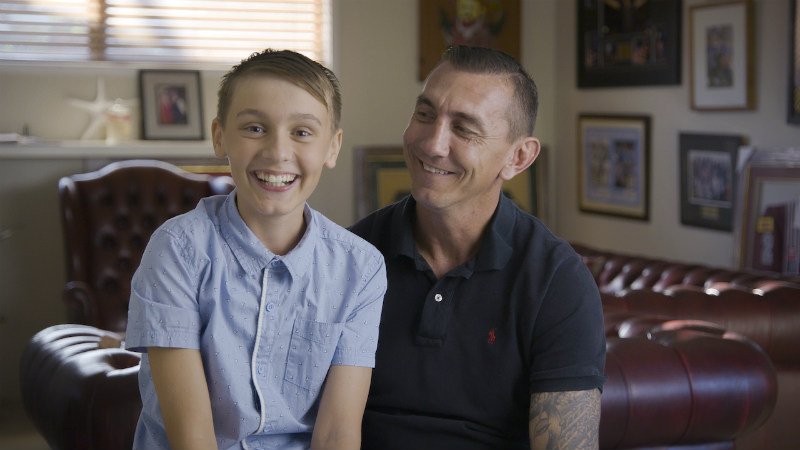

“Seeing these fathers talk about their journey is both emotional and inspirational.” Nicole says the response has been brilliant. The film has had over 40,000 views on YouTube and now lives on its own dedicated web site – www.dadfilm.com.au.
It is critical, she says, for dads to have a support network and know that it is okay to speak out and seek help.
“Often in these situations it is one parent who kicks into action mode, and that is typically mum,” she reports.
“The other has to return to work and keep everything ticking over and that is typically dad.
“That can often make men feel very isolated from the whole process and unable to help, or not know how to. There is no right way to manage these situations in life. “Everyone’s experiences are all so personal, there isn’t a manual.
“However, we felt that father’s telling their stories, the good and the bad, the struggles and successes, then that may help other father’s figure out their role in all of this.”
Parents of children with special needs often gravitate to those with a shared experience.
One Sydney entrepreneur is harnessing the comfort, reassurance and respect felt between people on a similar journey.
Jaynie Johnson is the founder of Lucky Mama, a new organisation offering retreats and nights out for special needs mums.
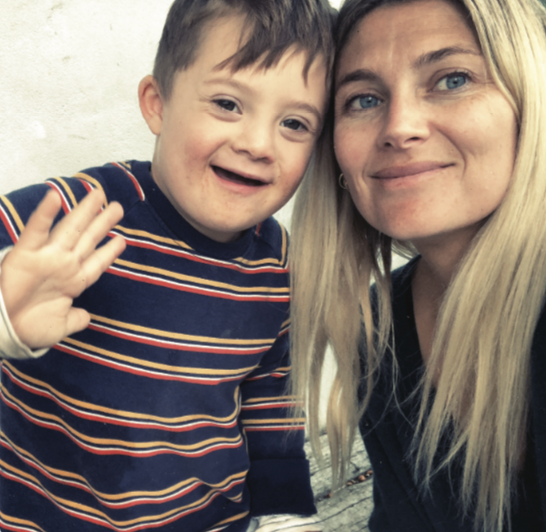

With husband Nathan, Jaynie has children Willow, 9, Dare, 5, and Rocky, 2.
Dare has Down Syndrome.
“We feel like the luckiest family in the world to be part of such an amazing community,” Jaynie says.
The former primary school teacher runs a design studio and recently started Lucky Mama – to celebrate and facilitate meaningful connections and community for mothers of children “who have a diagnosis, but aren’t defined by it”.
Jaynie says that after Dare’s unexpected diagnosis of Down Syndrome, her family received deep love and support from family and friends.
“We have been blessed to have felt their unwavering support continually throughout the years,” Jaynie says. “Still, while in hospital with baby Dare, we were needing to feel connected to families that looked a little more similar to our new found unit.
“We were craving information, but not from a textbook — we wanted real-life stories and connections.”
Jaynie recalls making online friends with people who were “real-time, authentic, whole-hearted individuals” and went to the US to attend a retreat with some of them.
The journey led to the birth of Lucky Mama in Australia and it will be expanded to New Zealand next year.
Two retreats are held in March and August each year – creating environments and moments where “Lucky Mamas” are able to connect, relax and be inspired.
Dinners are also held around the country to allow for a fun night out.
“We have big plans to help families,” Jaynie says. “We are currently just hoping to help mums feel connected and supported and to give them an opportunity to find a place to be real and not feel alone. A place where it isn’t too serious, but just a bunch of fun really.
“The biggest ‘wow’ moment was at our last dinner when a mother told me she had been waiting 14 years for this dinner. That blew my mind thinking that for so long she hadn’t been able to find other mums with a shared experience.”




